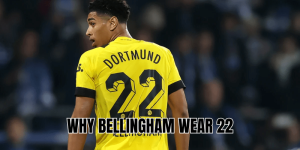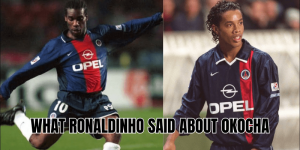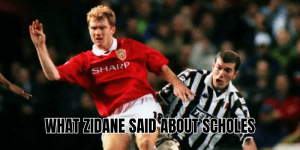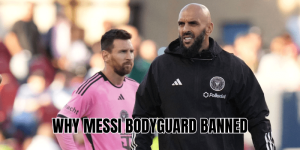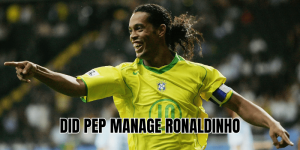From the moment news broke that Luka Modrić—a global icon, Ballon d’Or winner, and still-in-form midfield magician—had bought into Swansea City, the football world paused. Why does Modric own Swansea? It’s a question that merges ambition, legacy, and strategy. In this article, ZaneyStrike will guide you through the story behind one of football’s most unexpected ownership moves: what his stake means, why he chose Swansea, and how this fits into the wider landscape of player-investors in modern football.
A New Role Off The Pitch
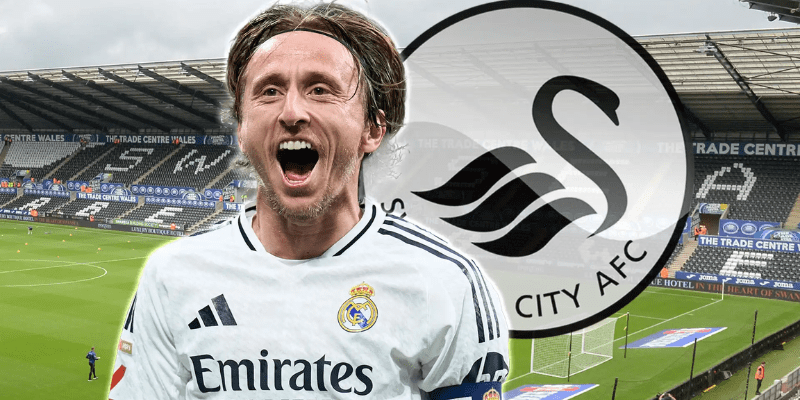
Let’s begin with the basic facts: in April 2025, it was confirmed that Luka Modrić acquired a minority stake in Swansea City, joining an existing ownership consortium.
The club issued a statement welcoming him as “investor and co-owner,” highlighting that he would help “garner global attention” and support the club’s growth both on and off the pitch.
He is the latest in a small but rising number of active or nearly-retired top players taking tangible roles behind the scenes in clubs.
Importantly, Swansea did not describe him as a controlling owner, but as a partner whose experience, network, and credibility bring value.
Why Swansea? The Logic Behind the Move
Strategic alignment with ambition
Modrić has offered hints about his motivation: Swansea “has a strong identity, an incredible fanbase, and the ambition to compete at the highest level.”
That phrasing is telling. He did not pick a glamour club; he picked one with potential—a club in the Championship with aspirations to rise, but also challenges to overcome.
By stepping into a club that is rebuilding, he can be hands-on in shaping that journey rather than just riding a pre-existing structure.
Brand, reach, and global appeal
One big advantage Modrić brings is star power and credibility. His name opens doors. As a recognised figure in Europe, especially in Croatia and Spain, his involvement can help Swansea attract sponsorships, partnerships, and media exposure far beyond South Wales.
For a club in the second tier, that profile boost is invaluable in bridging financial gaps with clubs in higher leagues.
A first step into football ownership
For Modrić himself, this is a clearly calculated first move into the business side of football. He is approaching the late stage of his playing career, and many elite players aim to leave footprints beyond their performance on the field.
Investing in Swansea allows him to combine his footballing knowledge with future development in coaching, administration, talent recruitment—or even serve as a blueprint for further club investments.
Modric’s Stake: What We Know (and Don’t Know)
Here is what has been reported so far about the size and nature of Modrić’s share in Swansea:
- It is a minority stake, meaning he is not the majority controller of the club.
- The exact percentage has not been officially disclosed by Swansea or by Modrić.
- Some media suggest his share might be in the ballpark of 3.3%, similar in scale to celebrity investments in other clubs.
- He joined an ownership group led by American investors, who acquired a majority interest late in 2024.
- The supporters’ trust retains some stake in Swansea, giving fans a continued voice in club affairs.
Because his share is small, his influence won’t purely come from number of shares—but rather.
What Role Can Modric Play at Swansea?
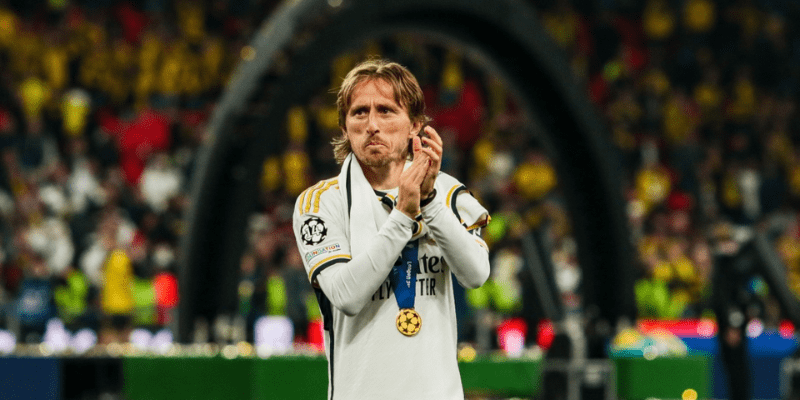
Owning a part of a club doesn’t guarantee power—but Modrić has several plausible levers he can pull:
- Sporting advice and recruitment
- He could advise on player signings, youth development, scouting pipelines—especially in Europe or the Balkans—using connections few others possess.
- Mentorship and culture setting
- His legacy and standards can help shape a professional culture that blends ambition with discipline. Younger players see a living legend invested in their club’s success.
- Commercial and marketing activation
- His name can help launch campaigns, drive brand expansion internationally, and open doors to sponsors in Croatia, Spain, and beyond.
- Long-term strategic planning
- Even with a minority share, he can act as a board advisor backing projects in infrastructure, analytics, stadium improvements, or academy development.
He is not expected to take over day-to-day operations, but rather to sit beside the existing owners as both a symbol and a participant in Swansea’s project.
Risks, Criticism, and Limitations
No move is without risk—and Modrić’s involvement invites scrutiny.
- Conflict of interest / focus: He is still an active professional. Balancing playing duties at Real Madrid with ownership responsibilities is tricky. Some will ask whether he can truly devote time and energy.
- Financial exposure: The Championship is notoriously unforgiving financially. Swansea has posted pre-tax losses in recent years, and maintaining competitiveness requires continuous investment. A minority shareholder can only help so much.
- Expectations vs. reality gap: Fans may expect swift success or high-profile signings simply because Modrić is involved. If results don’t follow, frustration can build.
- Limited control: With a small stake, he cannot unilaterally enforce policy. His influence depends on relationships, persuasion, and reputation—not pure control.
- Market comparisons: Some critics will compare this move to high-profile celebrity takeovers or to models like Wrexham (under Reynolds/McElhenney). Swansea is in a different context, and the glam cannot substitute long-term consistency.
Player-Owners: A Growing Trend
Modrić’s investment is part of a broader trend: elite players looking beyond playing careers to club ownership, equity, or advisory roles. Consider:
- Kylian Mbappé has claimed significant ownership in his local club Caen (in Ligue 2) while still a first-teamer.
- Vinícius Júnior reportedly took a large stake in FC Alverca in Portugal.
- Retired stars like David Beckham, Gerard Piqué, and others have invested in clubs, stadiums, or academies after their careers ended.
Modrić’s case is unique because he’s still an active top-tier star. That hybrid role draws comparisons to the likes of player-entrepreneurs in other sports—and it signals that top footballers are increasingly preparing for life beyond the pitch while remaining relevant in the game.
What This Means for Swansea City
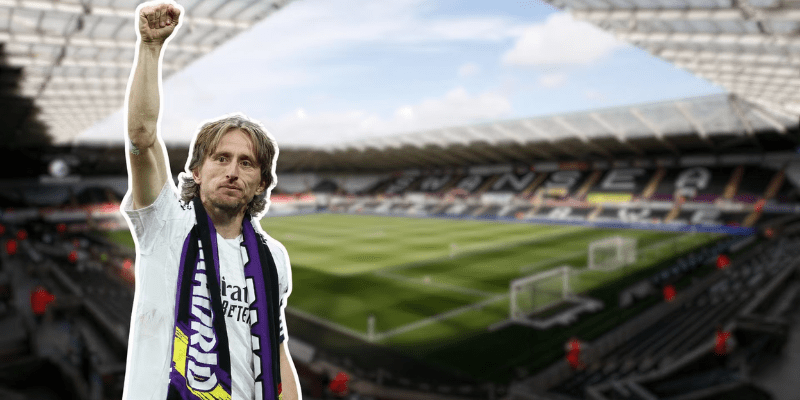
For Swansea, Modrić’s entry is more than symbolic. It carries several potential benefits:
- Enhanced credibility and draw: Having a player of Modrić’s stature signals ambition, not just intent.
- Stronger recruitment leverage: Agents and players may find a club linked to a global star more attractive.
- Commercial uplift: New markets, sponsorships, visibility—all help stabilize finances in a tough league.
- Strategy shift: Clubs in the Championship often rely heavily on short-term fixes. Modrić’s involvement may push Swansea toward more sustainable, long-term projects.
However, it remains contingent on how integrated he becomes, how the other owners respond, and whether results on the pitch follow.
Conclusion
Why Does Modric Own Swansea? Because this move is about bridging the gap between legacy and ambition. It gives him a seat at a table where he can shape a future club, not just reflect on a finished playing career. For Swansea, Modrić’s stake brings prestige, connection, and a spark of belief.
As Swansea pushes for growth, as Modrić transitions toward the next chapter of his professional life, fans and observers alike will watch whether a minority share can deliver major impact.
Now, ZaneyStrike invites you: watch Swansea’s progress this season, see how Modrić’s involvement plays out, and keep coming back here for dee. The why does Modric own Swansea question is just the start of a story that might reshape club ownership — together, we’ll follow it.


